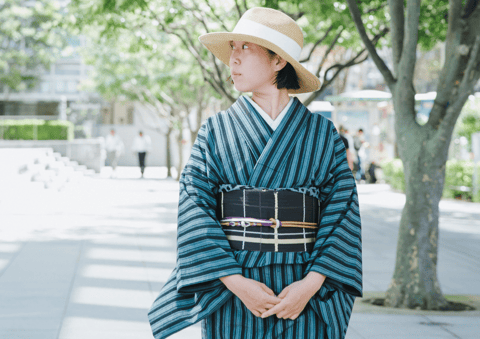 Shama Sukul Lee, founder of Sunfed Meats. Photo: Sunfed Meats
Shama Sukul Lee, founder of Sunfed Meats. Photo: Sunfed Meats
March marks two important celebrations, International Women's Day and Women's History month. In honor of both these days, we're spotlighting five women-owned meat alternative brands in the plant-based industry.
See also: Hannah Nguyen from Singapore’s The Kind Bowl spills the secret to her award-winning vegan pho.
According to the Census Bureau's Annual Business Survey, there were 6,861 more women-owned companies in 2018 than in 2017 in the US. The good news is that these numbers are improving. While change takes time, we can contribute by supporting and celebrating these leaders in the industry.
Read on to find out how you can support and amplify their voices for the community.
Betta F!sh
Berlin-based startup Betta F!sh was founded by Deniz Ficicioglu and Jacob von Manteuffel. The company makes vegan "tu-nah" (tuna) sandwiches which mimic the taste and texture of tuna using plant ingredients like fava beans and seaweed. They come in three flavors: classic, sweet-corn and pepper, and sweet chili.
 Jacob von Manteuffel, Founders of Betta F!sh. Photo: Sillicon Allee
Jacob von Manteuffel, Founders of Betta F!sh. Photo: Sillicon Allee
The founders are building their business around seaweed, a crop that requires less resources to cultivate and no pesticides or fertilizers. The aim is to make seaweed a mainstream ingredient in Europe, which otherwise can only be found in the Asian section of supermarkets.
Doing so is no walk in the park but Betta F!sh is in good hands. Ficicioglu counts bootstrapping Oceanfruit, her first venture, as valuable experience having seen it grow in revenue from 0 to $300k in a year.
“You only learn whether something works out or not when you make decisions,” she once said in an interview.” If you make these decisions early on in your process you also learn early on and move on quickly. Don’t get hung up on failure.”
Green Rebel Foods
Green Rebel brings Asian flavors to the comfort of your home through their plant-based products. The brand is spun off from Burgreens, Jakarta's largest vegan eatery chain. Both brands are founded by Helga Angelina, a social entrepreneur passionate about health, wellness, and the environment.
 Helga Angelina and Max Mandias. Photo: Green Rebel
Helga Angelina and Max Mandias. Photo: Green Rebel
Helga became a vegetarian in her teens in order to help treat her allergies. Later, after learning more about the benefits of a fully plant-based lifestyle, she and her then-boyfriend, now business and life partner, became vegan.
The switch to the vegan diet helped her with the allergies, and together they were amazed at the healing power the new lifestyle had. In 2013, Burgeens was born out of a passion project. Six years later, after seeing a demand for the products they served in their restaurants, they started Green Rebel to commercialize plant-based foods for the mainstream community.
One of the biggest challenges making the switch from Burgreens to Green Rebel was scale manufacturing. “We needed almost perfect resource planning before introducing new products, improving existing products, or catering to new big clients. We are constantly leveling up our manufacturing operations and logistics as we grow Green Rebel.”
Float Foods
Float Foods is the first of its kind, a Singaporean-based start-up dedicated to creating a plant-based whole egg substitute. While there are other vegan alternatives in the market, they're mostly available in liquid blends.
 Vinita Choolani, founder of Float Foods. Photo: Read-A
Vinita Choolani, founder of Float Foods. Photo: Read-A
Vinita Choolani, the founder, was inspired to get into the food-tech industry after experiencing the pandemic's effects on supermarkets – when milk and eggs ran out. This motivated her to invest in local production to maintain food security.
On average, 74 percent of eggs are imported to Singapore, making it more likely to cause disruptions if the supply gets affected. For Vinita, "Having a plant-based alternative allows us to be less dependent on imports and less susceptible to supply disruptions," as mentioned in an interview.
Vinita believes that plant-based lifestyles will soon be the norm. OnlyEG was created to match the nutritional value to its traditional counterpart. In the long run, she hopes their plant-based egg can be readily available to everyone, whether in restaurants or at home. Their first products, shreds and patties, will be launching shortly, in Singapore, and then globally.
Aqua Cultured Foods
Can fermentation be used for alternative seafood products? Aqua Cultured Foods shows you the way. Using the world's first whole-muscle cut protein alternative, they use fermented fungi to make tuna, whitefish, squid, and shrimp.
 Anne Palermo and Brittany Chibe, founders of Aqua Cultured Foods with lead scientist Bob Schultz. Photo: Chicago Inno
Anne Palermo and Brittany Chibe, founders of Aqua Cultured Foods with lead scientist Bob Schultz. Photo: Chicago Inno
Anne Palermo, the co-founder, and CEO, has experience in the food tech and science industries. She first experimented with growing mycelium in her pantry on wet cardboard. Soon she realized this could be a sustainable option for alternate seafood. In an interview, Anne mentioned, "Through one of my many experiments, I started to realize that this could be a real, viable option for an alternative seafood."
While the fungi are grown, they do not lose nutritional value and are considered superior to other alternative products. Now you can have seafood without worrying about the calories; their products are GMO-free (genetically modified organism) and high in protein and fiber.
Sunfed Meats
New Zealand firm Sunfed Meats, known for its products like Chicken Free Chicken, Bull Free Beef and Boar Free Bacon was founded by Shama Sukul Lee, a software programmer turned food-tech entrepreneur, in 2015. Her entrepreneurship journey began when she took time off her software engineering role to do something more meaningful.
 Shama Sukul Lee, founder of Sunfed Meats. Photo: Sunfed Meats
Shama Sukul Lee, founder of Sunfed Meats. Photo: Sunfed Meats



